#lord peter wimsey series
Text
Father Brown: Beneath the foolish-seeming exterior there lies an analytical, supremely sympathetic man.
Lord Peter Wimsey: Beneath the foolish-seeming exterior there lies an analytical, supremely sympathetic man. Beneath him there lies another very silly man, except this one reads Donne.
#lord peter wimsey books#lord peter wimsey series#lord peter wimsey#lord peter#dorothy l sayers#g k chesterton#gk chesterton#g. k. chesterton#father brown#the complete father brown series
505 notes
·
View notes
Text
Lucian's Library 3
Feel free to suggest never written books you wish you could read.
Option slightly shaved to fit the format.
#Patrick Rothfuss#The Kingkiller Chronicle#The Sandman#Terry Pratchett#The Mystery of Edwin Drood#Charles Dickens#Hilary Mantel#Shirley Jackson#Elizabeth Gaskell#A Mansfield Park#Jane Austen#Patrick O'Brian#Aubrey–Maturin series#C.S. Lewis#Agamemnon#Dorothy L. Sayers#Lord Peter Wimsey#Kubla Khan#Samuel Taylor Coleridge#Christopher Marlowe#Kit Marlow
240 notes
·
View notes
Text
We don't talk enough about the Petherbridge/Walter adaptations of the Wimsey/Vane novels.
(Well, we probably talk EXACTLY enough about Gaudy Night, which is really pretty bad, but besides for that...)
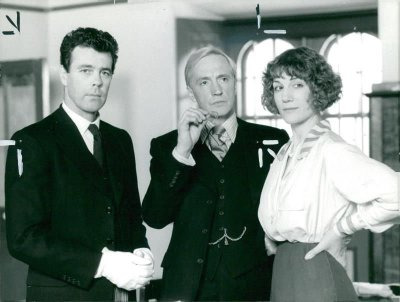
(Sorry, just a warning, Richard Morant as Bunter is fine but I won't have much to say about him here. I just really like this picture.)
The casting is basically perfect, especially Harriet Walter as Harriet Vane. I no longer see the book character in any other way- the only notable difference is that in the book she's noted as having a deep voice, but Walter's has a distinctive enough tone that I think it works regardless. She is just so, so, so good- captures the character beautifully, sells everything she does whether mundane or ridiculous (probably the best/most realistic reaction of someone finding a body I have EVER seen in Have His Carcase), makes the most of every limited minute she's on screen in Strong Poison and leaves her mark every minute that she isn't... and she looks AMAZING doing all of it. Just perfect, could not imagine better casting.
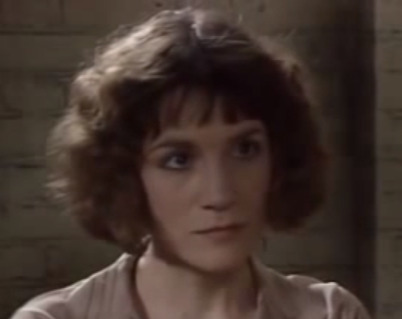
Edward Petherbridge I don't hold up to that level of perfection- I think that, try as he might, he's not really able to capture Wimsey's dynamism (possibly because he's a bit too old for the role) and is a bit overly caricatured in many of his mannerisms. But overall he does a pretty good job, in addition to looking quite a lot like how I'd imagined Wimsey- but in particular, I think he does a really lovely job of selling a lot of the emotion that he has to convey in some scenes that feel like they SHOULDN'T be adaptable from the book- specifically the scenes of him and Harriet. Him proposing to Harriet, him being disappointed when she (completely reasonably) turns him down... those shouldn't work on screen with real humans rather than in Sayers's calculated prose, but it DOES work and in no small part because he's great at selling Wimsey's feelings as being genuine even when his actions seem over the top. And, of course, Harriet Walter sells her end of the scenes right back. All in all, I think I have mixed feelings about Petherbridge as Lord Peter Wimsey the detective, but I'm a fan of him as Peter, the man who has feelings for Harriet.
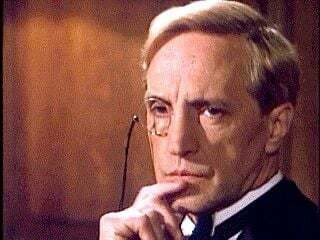
Overall, though, both are, I think, very successful in capturing these characters- the fact that they take these people who even in the book can sometimes push the boundaries of likeability (which to be clear, is part of what I love about reading them) and make them eminently watchable is a great achievement. And also, in addition to their really looking like their characters individually, they're very well matched as a pair in the way that one pictures them from the book. They're even of very similar height and build, which we know is canonically true from Gaudy Night, and thus at least a somewhat relevant element of their dynamic.
Now, the adaptations are very uneven, and that's even without talking about Gaudy Night because, while it has about as good a rendition of the punting scene as I think we were ever going to get, most of the rest of it is crap and massively expands on what I think are serious problems to Peter and Harriet's relationship that the series as a whole had (not to mention cutting the character of St George, which is a travesty). None of the adaptations are perfect, and mess with aspects of their relationship in negative ways- for example, the ending of Strong Poison is exactly backward in a really awful way. I'll get back to this.
But when the show gets the two of them right, it gets them RIGHT, even when it's adapting Sayers's text/creating new dialogue. There are scenes in this one that I love almost as much as the canon text, like this one:
I don't think any of this is in the book, and there are things that happen here that I don't think Sayers would have ever written. But at the same time, a combination of the dialogue and the actors makes it COMPLETELY believable as these two people, and it captures a moment that is just really key for Peter as he faces his limitations and his feelings- something that in the book is conveyed through a lot of internal narrative on Peter's part that would be impossible to adapt as is, but that in the world of the show needed to happen in a much more visual and narrative way. Not all of the dialogue that this series chooses to fill in those gaps works, but even when it doesn't the actors do their best to sell the heck out of it, and when the dialogue DOES work it is seriously brilliant.
Probably my favorite of the adaptations is Have His Carcase, and scenes like this one are a big part of the reason why:
They change the location, but otherwise it's EXTRAORDINARILY faithful to the equivalent scene in the book, and honestly it shouldn't have worked with real people doing it and yet it does. It's just acted perfectly, given just enough arch and silly humor (particularly with the spinning door) that we don't attempt to take it too seriously, while also conveying the relevant emotions so well. The actors in the scene through only their faces and ways of speaking convey subtext that Sayers, in the book, conveyed a lot later on as actual text in the characters' thoughts, and there's something pretty great about that.
Other Have His Carcase scenes are less good (the dance scene is mediocre at best, I think), but if there's another Have His Carcase scene that I think illustrates how great Walter and Petherbridge are at selling the human sides of their characters, it's That Argument- seen here:
The Argument is a pale imitation of that in the book- the one in the book is, in fact, probably unadaptable as is- but it is still just so good because the actors are so good at selling it. Walter is just brilliant in the role and utterly inhabits it while also imbuing it with her own spin, and makes us feel Harriet's pain- and Petherbridge, through some relatively subtle facial expressions and reactions, is able just as well to make US understand what all of this means to him and how he feels. It's actually really remarkable that, just like how Sayers writes a relationship dynamic that only feels like it works because she's the one who wrote it that very specific way, this scene feels like it only works because these two actors play it in this specific way. Could two other actors do it? Very possibly, but it would feel super different and I wonder if it would feel this authentic. (I do want to note though that this scene made me really wish that we'd seen a Frasier-era David Hyde Pierce in the role of a younger and spryer, but equally posh, witty, and vulnerable, Wimsey. It just gave me vibes of something that he'd do beautifully.)
Now, as I said above, this doesn't get EVERYTHING right. In fact, quite a lot of their relationship ends up going pretty wrong- as I think a major mistake is their throughline which emphasizes Peter's continued pursuit of Harriet as not just reiterating his interest to make it clear that he hasn't changed his mind, but actively taking advantage of moments and situations in a romantic sense, taking a much more specific role in engaging with her physically, commenting on her appearance, saying how difficult it is for him to NOT pursue her more, etc. It makes the whole thing feel a lot more cat-and-mouse rather than a budding relationship of equals, and one where Peter acknowledges the whole time that they HAVE to be equals for a) Harriet to feel comfortable with him and b) them to be good together. In fact, however good the Argument above is, it's kind of undercut by this very pattern- he makes the book's point about him treating his feelings like something out of a comic opera, but he also at that point in the story has had a few much more oppressively serious scenes with her that clearly make her uncomfortable- nothing like anything in a comic opera. It's like the show misses the point a little.
I think the place where this really starts is at the end of Strong Poison. (I could see an argument to be made that it starts earlier, in a few smaller nuances of their jailhouse scenes, but I like those enough that I choose not to read into them too much lol.) After what I think is a great addition to the final jailhouse scene (one that I loved so much I repurposed it for a fic)- "it's supposed to be about love, isn't it" and some excellent reactions from Petherbridge- Harriet goes to court, her charges are dismissed, and unlike in the book, when it's Wimsey who leaves first (which Eiluned and Sylvia point out is a sign of his decency in not waiting for Harriet to thank him), here Wimsey is the one who watches as Harriet rejects him and walks away from him- the beginning of the chase. But nothing about their relationship is meant to be a chase! It's so frustrating to watch as that proceeds to be a continuing issue to a limited degree in Have His Carcase (where it's at least balanced by enough good moments that it doesn't matter so much) and to a MASSIVE, genuinely uncomfortable degree in Gaudy Night.
The only praise I will give it is that while the punt scene in the book is unfilmable, I think this adaptation did its best here and it's pretty good.
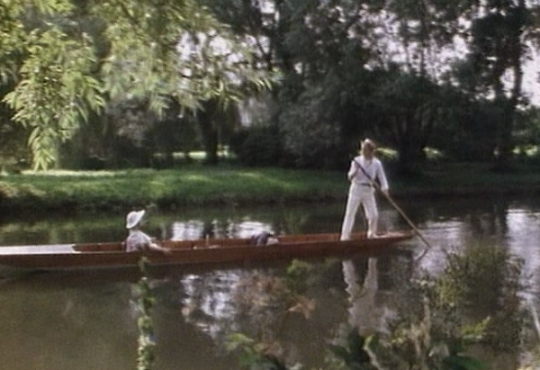
I'm not going to spend much time talking about Gaudy Night otherwise, because I'd need all day for it and also I'd probably need to rewatch it to make sure I get the details right and I have zero interest in doing that, but the way that it has Wimsey imposing himself and his feelings/hopes on Harriet to a really ridiculous degree, in a way that he never, ever does in the book, is just so so discomfiting and makes me feel terrible for Harriet. She doesn't deserve that. If I recall correctly, in that scene at the dance at the beginning, she's so happy just being with him and then he's all "oh so this means you want to marry me" and she just droops. He's so aggressive!
And that's what makes the worst part so bad, because not only does this miniseries not depict Wimsey's apology as the book does- one of the best scenes in a book full of brilliant scenes- it would actually be weird if it did, because this show doesn't imply that there's ANYTHING for Wimsey to be apologizing for! In fact, unlike in the books where we see Wimsey growing and deconstructing the parts of himself that had been demanding of Harriet, in the series we only see him get more demanding- until finally he wins. It's honestly infuriating and I hate it- the actors do their best to sell it (and apparently they were given bad enough material that they actually had to rewrite some of it themselves, though I have mixed feelings about the results) but it is just massively disappointing. Basically the whole emotional journey between the two of them is not just neutered but twisted.
For all of my criticisms of the adaptations' all around approach to their relationship, I do have to reiterate- Walter and Petherbridge do a wonderful, wonderful job. (Especially Walter.) When they're given good material to work with, and even often when they aren't, they are able to sell it so well- and particularly in the case of Walter, I genuinely can't think of the character as anyone but her rendition now. She IS Harriet Vane for me. And, for all the flaws that the series has, that's something pretty dang special.
Anyway, for anyone who read through this whole thing and hasn't seen these adaptations, I DO recommend Strong Poison and Have His Carcase- but not Gaudy Night unless you're either really curious or a glutton for punishment. The first two, though, have very good supporting casts, are quite faithful plot wise (sometimes to a fault- another flaw is that they are really devoted to conveying the whole mystery with all its clues sometimes to the point of dragginess, but will drop sideplots like, for example, Parker and Mary- which is totally reasonable, but still vaguely disappointing as those sideplots tend to add some levity/characterization), and just generally are an overall good time. (Some standout characters for me are Miss Climpson in Strong Poison and Mrs Lefranc in Have His Carcase.) And, of course, the best part is seeing the little snippets of Peter and Harriet that come through- less so their journey, vs in the book where that's central, but so many scenes where we just see the two of them together as they are in that moment and it's so satisfying.
#peter wimsey series#peter wimsey#lord peter wimsey#harriet vane#dorothy l sayers#edward petherbridge#harriet walter#a dorothy l sayers mystery#as was apparently the official title of the petherbridge/walter series#my thanks to the as my wimsey takes me podcast people#for a) coming back and finishing have his carcase#which was very enjoyable plane listening#but also for mentioning the adaptation in one of the episodes and inspiring the rewatch that led to this post#also this blog is basically now a sayers blog just as it is a finnemore one i guess#which as i note is fitting due to my Dog Collar Theory#which is YET ANOTHER THING THAT THE GAUDY NIGHT ADAPTATION LEAVES OUT GRRRRRR#strong poison#have his carcase#gaudy night
38 notes
·
View notes
Text
Dorothy Sayers writing Have His Carcase in 1932:

Me reading it for the first time in 2018:
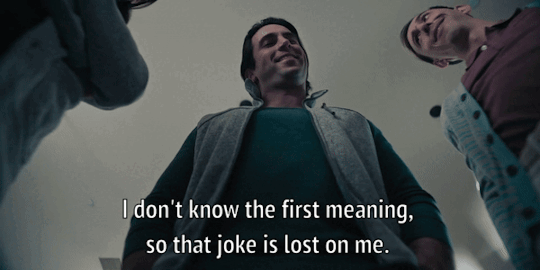
Time to find out if there's a single other person besides me and my roommate who has both read Have His Carcase and seen Headless!
#Dorothy Sayers#Lord Peter Wimsey#Have His Carcase#Headless series#Shipwrecked Comedy#Now I'm imagining Mr. Perkins being replaced by all three Babes#Harriet would be losing her damn mind
25 notes
·
View notes
Text

#butler battle bracket#round 2#mervyn bunter#lord peter wimsey mysteries#lord peter wimsey#radar o'reilly#m*a*s*h#mash#pollrunner's note: this is '87 tv series bunter and if anyone has a different version/a better quality jpeg they'd like to see next round#well then both my dms and the askbox are open. the poor fellow's kind of blurry currently :/#it was very difficult to track down even this and this is not a situation where I feel qualified to Draw my way through it instead
43 notes
·
View notes
Text

-
OK, sorry, screenshotting this as not that closely related except in my brain and only in conversation with the tags, actually
I was thinking of how these two were raised with very specific roles in strongly class-based culture
And that both inescapability of that forming influence and yet compulsion to redefine it as the “crazy”
And Tolkien in conversation with the same changing mores and social structure as
Dorothy L. Sayers and the way Wimsey in Clouds of Witnesses is reflecting on noblesse oblige and also class vis a vis a dying nobility class in all the books??
And anyway Harriet Vane and Lord Peter Wimsey are Farawyn vibes to me in this exact way
#harriet also has primacy of arc in their series#though there’s more space for Peter in books that are almost primarily about their relationship#fandom#geekery#lord peter wimsey#harriet vane#dorothy l sayers#hectomache#liridi
15 notes
·
View notes
Text
something very transmasc about the fact that monocles were largely an object of men’s fashion (unless you were a lesbian or G. E. M. Anscombe) and mostly fell out of fashion when glasses technology improved and it was thus easier to have different strengths in each lens. your vision needs correction but you wear glasses because it’s not terribly socially acceptable to wear the thing you wish you could wear, that you want to wear… and when you finally can and do wear it, it quite literally changes your view of the world for the better.
anyway this is why I think Psmith and Lord Peter Wimsey are transmasc -
#red randomness#psmith#lord peter wimsey#rupert/ronald psmith#peter wimsey#I’ve barely read either series so a thousand things could disprove this#but I’m choosing to believe this unless I’m forced to see otherwise#let me have this#also if I had a nickel for every autistic bisexual polyamorous monocled old lit protagonist#who is far smarter than his silliness would suggest#I’d have two nickels#god I need to read more of these books#I love these two from what I’ve read
5 notes
·
View notes
Text
i literally just remembered this book series but FUCK y'all
ok so. it is the Lord Peter Whimsey series by Dorothy L. Sayers and if you follow me on tumblr then this series is probably right up your alley
Lord Peter Whimsey is this british gentleman in like the 1920s and he's a dumb little twink so he goes around and solves mysteries and is like "i do say i love mysteries" and everyone else is like "can you please act like a human" and he says no. He has a butler and a police officer friend and yada yada yada. Anyway.
THE FUCKING THING is that Peter has severe PTSD from when he was drafted to serve in WWI, and his butler, Mervyn Bunter (don't make fun of his name he's sensitive) was his second-in-command while he was in the army (FUGUAN) and when Peter was discharged, Bunter came back with him so that he could take care of him cause Peter's fucking BAD at it BUT ANYWAY if you like bodyguard tropes this one is??? really good????? their relationship is iconic and I love it.
But also the portrayal of mental illness and chronic conditions are really interesting? There's this whole chapter in the first book where Peter gets too worked up solving the case and starts having flashbacks and Bunter's like "shit" but he calms him down and stays with him and pretends like they're back during the conflict so that Peter doesn't freak out? and like no one knows really what it is because it was written in the early nineteen hundreds but we know and hghghghghgghghgh.
there's a scene in the second book where Bunter and Peter are on the moors and Peter falls in a hole because he's an IDIOT and Bunter catches him and then stays there holding him for HOURS so he doesn't slip under the marshes and I'm like???? devotion????????? at one point the narration just goes "he felt he could hang on forever" and i start screaming and crying and throwing up
it's so very british but i'm obsessed with their relationship and i just needed more people to know about it thank u bye
#dorothy l sayers really said i feel like they should be boyfriends and then they were#think about them all the time#lord peter wimsey#they really should make a tv series i would watch the shit out of it#sherlock who??#books
35 notes
·
View notes
Note
Hello! I think I may have a way to help the person who was looking for an annotated version of Gaudy Night/Sayer’s work. Since English isn’t my first language either, I have found this site to be extremely helpful:
https://peschelpress.com/gaudy-night-annotated/
It has annotations for most (if not all) of the books in the Lord Peter Wimsey series, and it helped me understand many of Sayer’s references that would have gone over my head otherwise.
Hope this helps your friend, wishing you both a Merry Christmas from Italy!
Thank you very much! Tagging @lordscruncle to make sure they see this, and wishing you un buon Natale!
98 notes
·
View notes
Text
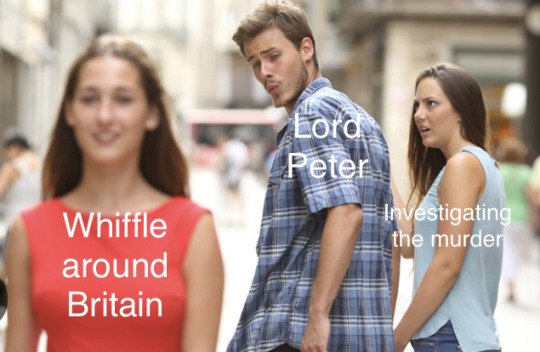
#literature#booklr#hilarious#meme#dorothy l sayers#lord peter wimsey series#lord peter wimsey#Lord Peter#Lord Peter wimsey books#lpw#murder must advertise
227 notes
·
View notes
Text
i love how lymond fans are also fans of the same three other series. like more often than not a lymond fan will also be a fan of lord peter wimsey, vorkosigan saga, and/or the queen's thief. love reading about a witty guy that is too smart for his own good going through it
#next year i WILL read queen's thief it's happening#and im also continuing vorkosigan#but man. would love to put lymond peter and miles in the same room to see what happens
91 notes
·
View notes
Note
So I am inclined to believe that Lord Peter Wimsey (from the series titled after him by Dorothy L Sayers) wouldn't survive for broadly the same reasons as Arthur Holmwood, but additionally:
- Lord Peter enjoys the church aesthetically, but he's very much a post-WW1 atheist, so while he'd probably take the crucifix out of politeness, he'd probably forget he has it entirely and he wouldn't put any stock in it either
- Being an Eccentric Nobleman himself and entirely too used to interactions with other Eccentric Nobles, the Count's behaviour probably wouldn't raise many red flags until it was far too late
- Lord Peter's investigation style is fifty percent deliberately acting like an empty-headed upper-class English twit, so people underestimate him and accidentally confess their crimes to him. He'd probably fascinate Dracula for a bit, particularly with his constant quoting of literature, but the Count isn't going to spill the beans about his plans to Drink All The Maidens In England because his guest is funny, and even if he did, Lord Peter wouldn't be able to do anything with that information
- He would absolutely not survive the Lady Vampires, attractive women are a massive weakness of his
- Bunter is? Probably here too, but idk if having his beloved valet around would make much difference to Lord Peter's survival. Bunter would notice the lack of servants in the castle immediately though, which might at least tip him off that things are Weird.
I'm not even going to take into account that, canonically, Lord Peter would be... seven? At most at the time of Dracula, because that makes it too easy lmao.
Thank you for this analysis!
And ahahaha yes we are quietly assuming as much time travel as necessary to get the premise to fly
46 notes
·
View notes
Text
It has come to my attention that there is a not insignificant overlap between fans of Lord Peter Wimsey and fans of the Granada Holmes series. Those people should be aware that there is a 1978 radio play adaptation of Tom Stoppard's Rosencrantz and Guildenstern Are Dead (adapted by Stoppard) where the title pair are played by Edwards Hardwicke and Petherbridge.
Tragically it was never released digitally, and the only way to hear it at present is a rip of the cassette release with pretty bad audio -- but it's absolutely still worth listening to!
#Lord Peter Wimsey#Granada Holmes#Edward Petherbridge#Edward Hardwicke#Tom Stoppard#Rosencrantz and Guildenstern Are Dead
45 notes
·
View notes
Text
Dec 31- Day #1 -A Fortnight of Books
Overall - best new-to-you books read in 2023?
Ooh - we start by firing the big guns, do we? Throwing objectivity to the wind and judging simply by the ones that had the most profound effects on me:

The King of Attolia by Megan Whalen Turner
They were right. They were all right. He is Annux. The series is all that it aims to be, and yet this book outstrips the rest. This books is cool water and lavishly red wine in summertime. I just can't believe that the heart of the book is that where we (and Costis) thought there was sloth, cowardice, self-absorption, and even cruelty, there is secretly compassion, fidelity, and the vitality of unearned mercy. And just, you know - "Go to bed, Eugenides."
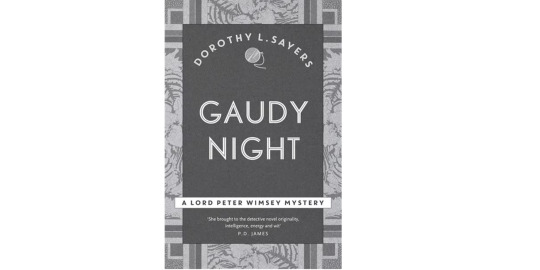
Gaudy Night by Dorothy L. Sayers
Oh, the sheer love - and genius - that was clearly poured into this book! While part of me wishes I had read this novel before I visited Oxford this summer, I don't know if I would have loved the novel in the same way if it had been the other way round. Like Harriet, i got to return to Oxford through this book and simultaneously become acquainted truly with Sayers' Wimsical imagination at the height of her powers. I have read a couple of her early Wimsey books, and they are great, but they do pale next to this one. The intelligence, the themes, HARRIET, the fact that it's a good mystery but the mystery is almost a bonus added on to following Miss Vane. And I understand Lord Peter so much better now. And yes, it reads like a love letter to everything in the world that the author loves. The best books often do. And the words, the words! I begin to think Sayers invented the English language, for she can make it do anything she wants in any style, any genre, prose or poetry.
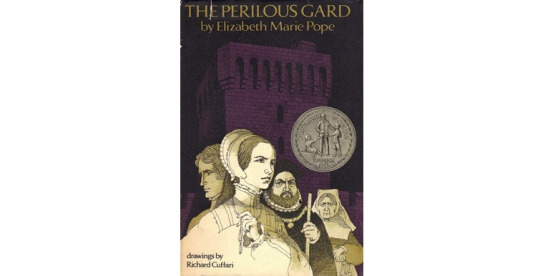
The Perilous Gard by Elizabeth Marie Pope
I don't know how to praise this one as well as I'd like to. It was one of the first books of 2023, and it was just such a jewel. Everything I love in a retelling and more. The fact that the way she held on to him was reminding him who he was, in the most practical, no-nonsense, down to earth fashion, in the face of the grandiose lies the cultist had told him about himself. This book gave me a bit of the cold iron to have about me, one might say.

What It Means to Be a Christian by Pope Benedict XVI
This book took on the meaning of suffering, what it means to live in the fulfillment of the covenant, and our individual callings in very few chapters, with an apparent simplicity that belies itself. It's so, so good.
Best series you discovered in 2023?
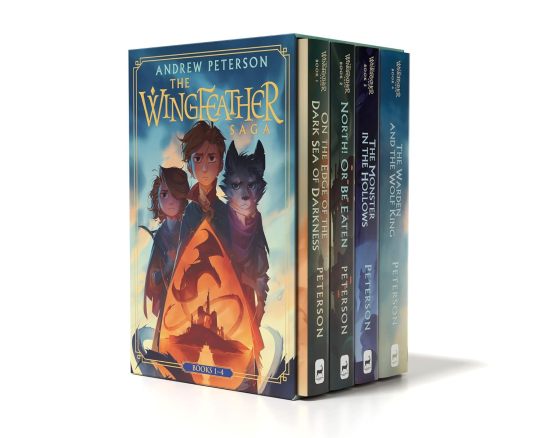
The Wingfeather Saga by Andrew Peterson
I might have waffled between this series and the Queen's Thief, but I read the first two books of the latter in 2022, which makes it easier. Shall I say, this series is so much greater than the sum of its parts. I imagine it would depend greatly on the individual whether certain aspects in Janner and Kalmar's arcs resonate as they did for me, but oh, I wish they could do so for everyone. These books had me weeping. Kalmar singing the Song of the Ancient Stones - and choosing instead to cling to his true identity with the help of his brother - had a very specific meaning to me, something truly transformative. And I will never forget Podo Helmer, realizing that for the first time in his life, his whole story had been told, and against all hope, he was still loved.
And all this is not to mention the two days of longing it sent me spiralling into. Longing for beauty, for creativity, for God.
Best rereads of the year?
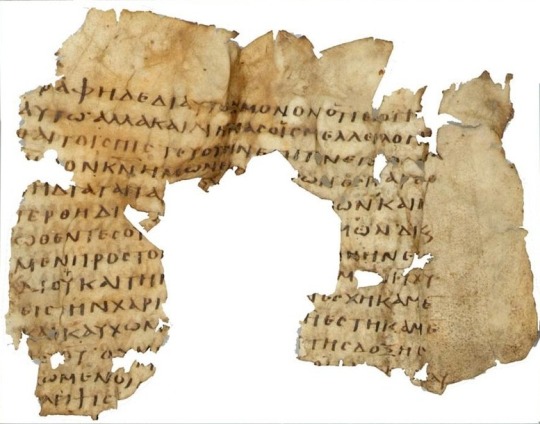
The Letter to the Romans by Saint Paul the Apostle
This was the year of jumping head first into the wave pool of Romans and simply refusing to get out of the water when the lifeguards said closing time. Honestly, Christ did something this year that changed the way I experience Scripture. Still working through multiple commentaries and mean to continue them into the New Year.
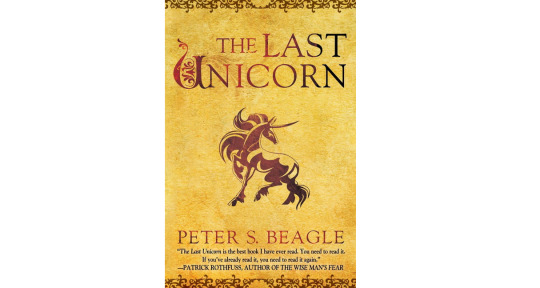
The Last Unicorn by Peter S. Beagle
Beautiful book. Beautiful, beautiful book, with a heart that's melancholy yet warm and hopeful. So much thinking to do.
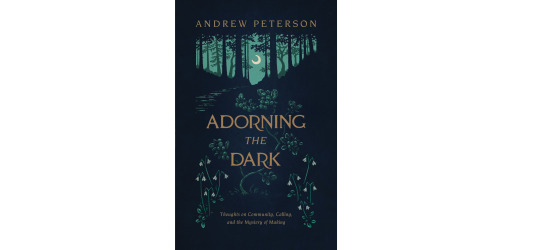
Adorning the Dark by Andrew Peterson
Did me a lot of good in completely different ways than it did last time.
--
Thanks to @idratherdreamofjune, @valiantarcher, and @lover-of-the-starkindler (I believe) for the Fortnight of Books template. Love these questions. I'm going to try to answer the prompts every day.
15 notes
·
View notes
Text
If you like Dorothy L. Sayers' Lord Peter Wimsey series, I can highly recommend to you P. J. Fitzsimmons' series about Anthony "Anty" Boisjoly (like the wine region, not "Boys-jolly"!) wherein he goes on happy murder adventures with his senile valet Vickers and the ever suffering Inspector Wittersham. It's light, it's hilarious and just the perfect thing for when you're feeling blue!
8 notes
·
View notes
Text
Video Killed the Radio Star
If you don't already feel sufficiently alienated from the culture of your generation, consider getting into old time radio. It's pretty easy to do: Radio was mainstream media from the 1930s well into the 1950s, and it hung on for quite a while after it started losing ground to television. There's a huge amount of programming in various genres, and a surprising amount of it survives; there was a cottage industry in OTR cassettes and CDs for many years, a lot of shows can be found in MP3 format without much effort, and some of it pops up regularly on streaming platforms.
The easiest way to get into it is if you're already got a fondness for some older Hollywood star: If they were a movie star between 1930 and 1960, there's a good chance they guest-starred in various radio shows, and they might even have had their own show for a while. For instance, do you like Humphrey Bogart and Lauren Bacall? Around 1950, they had their own syndicated radio adventure series, BOLD VENTURE, which was essentially an extended riff on their characters in the 1944 film version of TO HAVE AND HAVE NOT. Orson Welles, of course, was a big radio star, playing the lead on THE SHADOW in 1937–38 and then bringing his Mercury Theatre company to a number of different one-hour and half-hour radio series. Vincent Price starred for several seasons as Leslie Charteris's Simon Templar on THE SAINT. And almost everyone who was anyone showed up now and again on SUSPENSE or LUX RADIO THEATRE (which produced all-star one-hour adaptations of popular movies). If you're a Superman or Sherlock Holmes fan, the radio versions of those characters are a must — Holmes was a perennial presence on English-language radio for decades.
If you want something more modern, the British kept producing generally high-quality radio dramas in surprising volume until relatively recently, including a range of both adaptations and originals. Unlike American radio, the survival rate for older British programs from the '40s and '50s is poor, but the BBC has continued periodically airing its better material from the '70s through the '00s, a lot of which has been offered on cassette and CD. For instance, there were excellent BBC radio series dramatizing the Wodehouse Jeeves and Wooster stories (with Michael Hordern and Richard Briers); Dorothy L. Sayers' Lord Peter Wimsey series (with Ian Carmichael); and Agatha Christie's Hercule Poirot mysteries (with John Moffat), along with standalone plays on programs like SATURDAY-NIGHT THEATRE. The big limitation with British radio dramas is that the number of British radio actors who can do convincing American accents is not high (and is definitely lower than the number who mistakenly think they can), and the availability of American actors who know how to act for radio is clearly even more limited, which can become a grating problem when dramatizing American material.
One of the reasons that listening to older (and/or British) radio shows will contribute to your cultural alienation is that it will make a lot of modern dramatic podcast series and audio dramatizations excruciating, because it will reveal to you how bad a lot of modern audio dramatists and performers are at this once commonplace art. (If you are or are contemplating doing a dramatic podcast or audio drama, please, for the love of dog, make a close study of radio shows created before you were born, and diversify enough to recognize the mediocrity of hacks like Dirk Maggs, who's been stinking up audio drama on two continents for four decades now.)
#old time radio#i actually hate the term old time radio#but it's a useful descriptor and it's not up to me#humphrey bogart#lauren bacall#orson welles#bold venture#vincent price#leslie charteris#sherlock holmes#superman#what ho jeeves#michael hordern#richard briers#dorothy l sayers#lord peter wimsey#ian carmichael#hercule poirot#john moffat#saturday night theatre#dirk maggs#radio#bbc radio
17 notes
·
View notes